EUFCN Spotlight on: Ticino Film Commission
In the south of Switzerland, in a Mediterranean climate, Ticino unveils its thousand facets. It’s a territory full of contrasts, source of inspiration for many stories and a favourable environment for film production.
The Ticino Film Commission was founded in 2014 by the Ticino Tourism Agency, the Locarno International Film Festival, the Association of Ticino Producers (AFAT) and the Association of Directors and Screenwriters of Italian Switzerland (GRSI). The aim of the film commission is to welcome and support national and international audiovisual productions that choose Ticino as a location for their projects and to stimulate the development of audiovisual skills in the area to create economic, tourist and cultural benefits in the region. The film commission is located in the PalaCinema of Locarno, an important center for cinema and audiovisual in Ticino and also the home of the Locarno Film Festival.
In this week’s Spotlight, Niccolò Castelli, newly appointed Director of the Ticino Film Commission, presents the current situation of the audiovisual industry in Ticino, a place which is also the setting of many of his projects as film director.
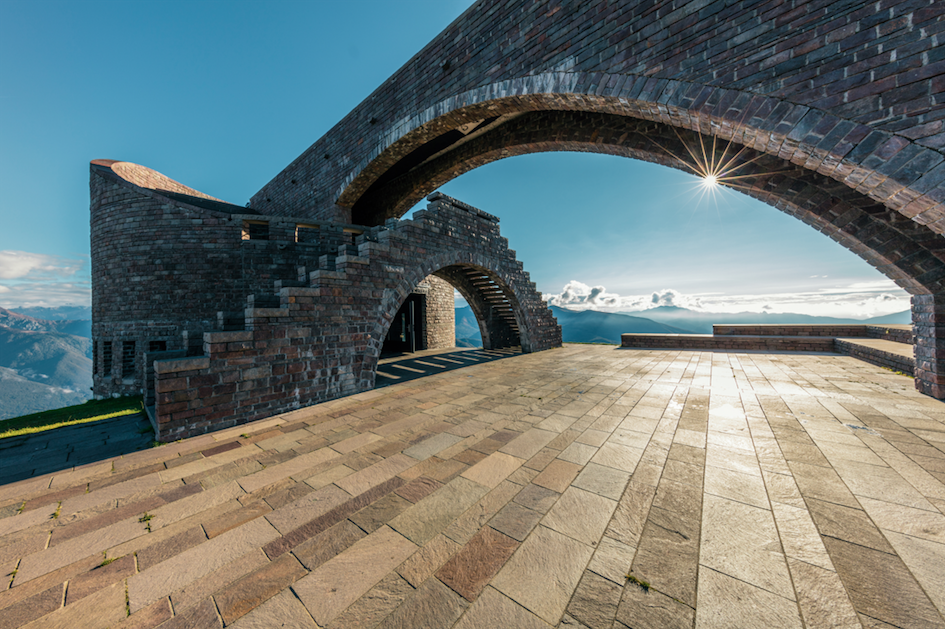
Monte Tamaro © Andreas Gerth
Which main productions were shot recently in Ticino and what is set to be shooting in the future?
“We have recently been able to host some important sets in Ticino, also thanks to a special Covid-19 incentive covering some of the expenses related to additional health precaution costs. In 2020, for example, an impressive set featured the reconstruction of part of the life of Nobel Prize winning author Hermann Hesse (1877-1962) and other important philosophers of the early 1900s in Stefan Jäger’s Monte Verità (tellfilm, Zurich). The Monte Verità, an idyllic hill above the town of Ascona and Lake Maggiore, was once a privileged destination for cultural gatherings. In addition to such productions from abroad, the last months saw the shootings of some local productions in Ticino.
This year, we are planning some important shootings of Swiss films in German language as well as the project of an Italian box-office winning director.”
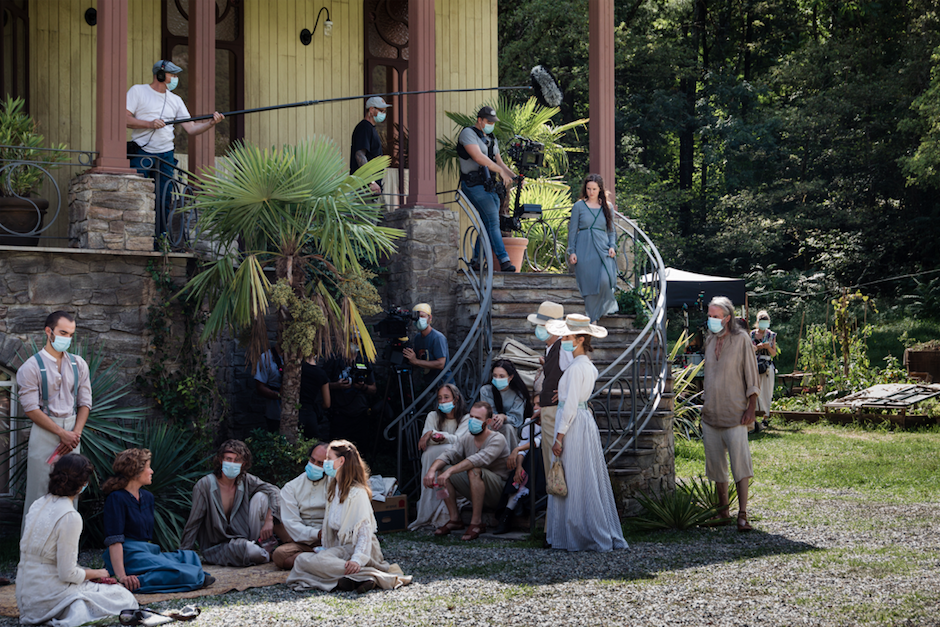
Filming “Monte Verità” by Stefan Jäger ©tellfilm
What’s the biggest production you have ever supported in Ticino?
“The biggest production of the last five years is definitely the Italian film Mister Felicità by Alessandro Siani, which shooting took place in Ticino in 2016. The production shot some scenes of the film in the city of Lugano, involving the streets of the city center, the LAC Museum and concert center, and the Lugano Cathedral, changing the city appearance completely for a couple of days.”
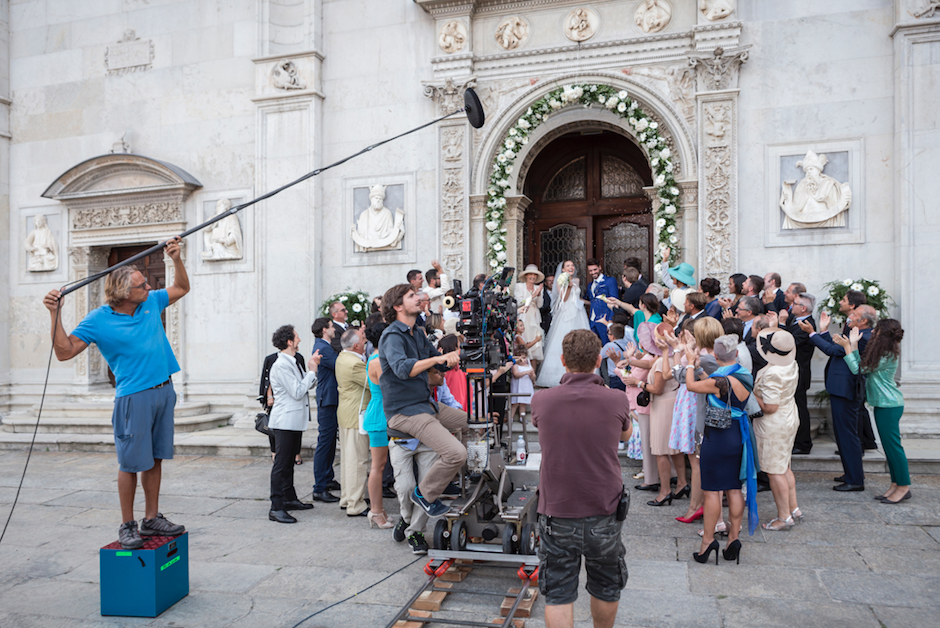
“Mister Felicità” by Alessandro Siani shooting in front of the Cathedral of Lugano
What makes Ticino a unique place for filming?
“The variety of the territory and a microclimate environment give the small Canton of Ticino a thousand facets. From the high Swiss mountains to the lakes surrounded by palm trees in one hour drive, in total security. Ticino amazes for its diverse and contrasting landscapes, ideal settings for a multitude of screenplays. At a logistical level, the south of Switzerland proves to be an ideal place for filming thanks to the proximity of its services and easy and safe access to even the most remote places. Those who produce their projects here not only take away with them the memory of picturesque, little-known locations, but also of professional and friendly crews, cooperative locals, municipalities and authorities, simplicity and a warm welcome.”
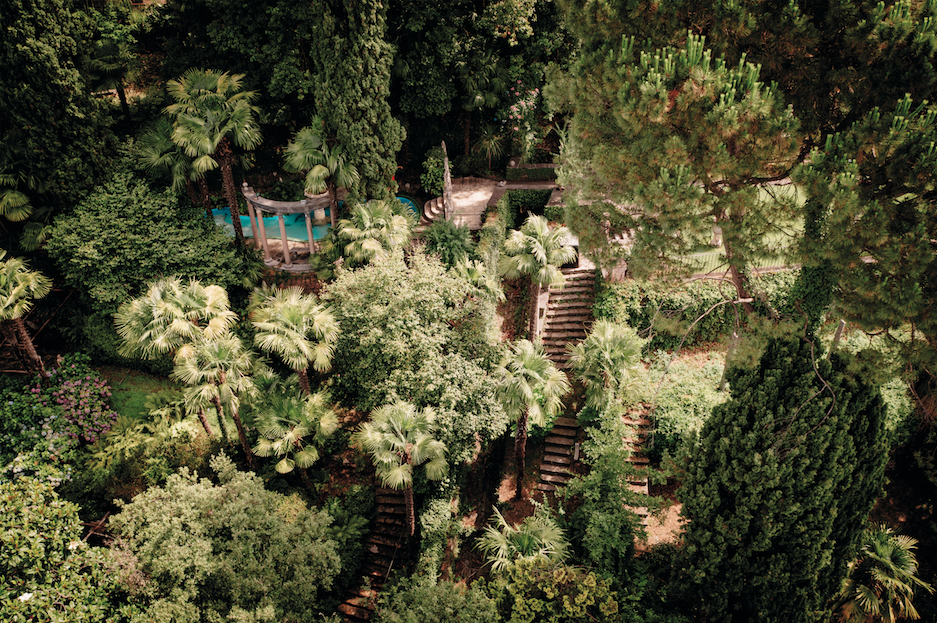
Parco Botanico Scherrer Morcote ©david&kathrin Photogtraphy and Film GmbH
What activities has the Ticino Film Commission been carrying out during these challenging months?
“During the first period of lockdown, we created a special Covid-19 fund to help productions faced with increased costs due to the health measures. In this way, those who still planned to film in our region, with sanitary regulation in place, received an additional fund to cover partial additional expenses.
In difficult time like this, when traveling is not allowed or recommended, we are trying to communicate to Swiss productions that in Ticino it is possible to “reconstruct” many environments in a simple way. We have varied landscapes and atmospheres of all kinds, as demonstrated by a recent campaign spot with Roger Federer: a story set in a village in the heart of Sicily was actually filmed in a small town in Ticino.
Furthermore, we invested the time to create a new website that would give a much more modern, attractive and narrative idea of our activity and in general of the cinema shot in Ticino. To do this, we collaborated with local authors and creators and the result is a website of which we are proud, much more than a presentation of our activities. The cinema and film industry of Ticino has tried to live on even during this challenging period.”
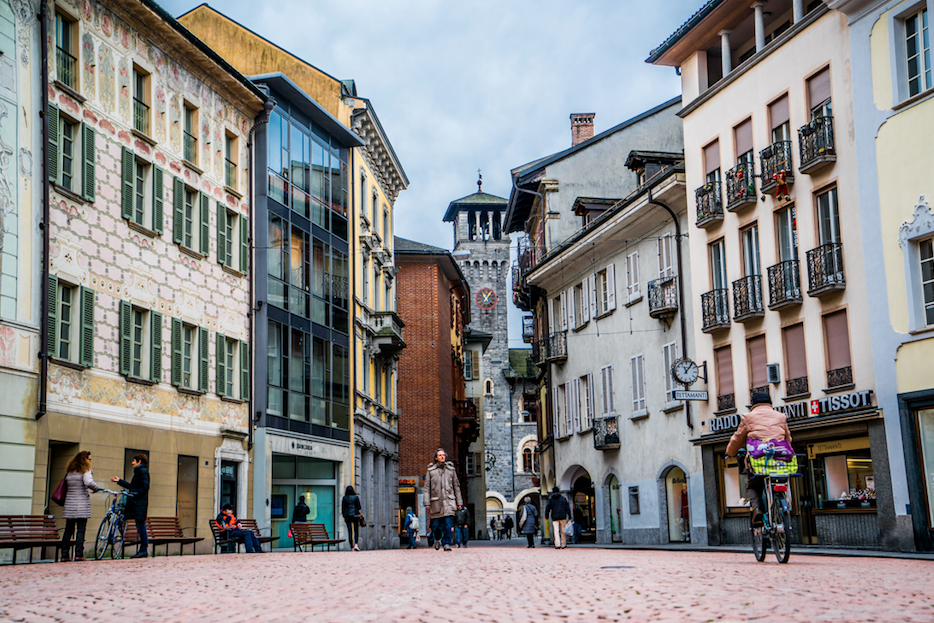
The town of Bellinzona ©Dariya Sirotina
How do you see the future of the audiovisual industry?
“The world of filmmaking with Covid-19 has entered perhaps more of a crisis than anyone could have imagined, and the biggest problems are yet to come. Those who already had financing or a distributor were at least able to finish their films. But now there will be more hesitation in financing works, especially if they are transnational projects, with transnational actors and crew. With too many films waiting to be finished and distributed, it will be difficult to normalize the whole chain and it will take time.
Our biggest upcoming challenge is to find partners to ensure further financial resources for the audiovisual industry. The Coronavirus has hit the professionals hard, but it has also given a form of hope to the young generations who are bringing out a willingness to fight to make films.”
The European Film Commissions Network is a non-profit association that supports and promotes the European film industry and culture. It currently represents 98 European film commissions and film institutions from 31 different countries.

 Dusko Miljanic
Dusko Miljanic